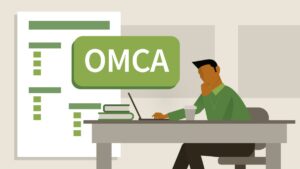Best Digital Marketing Certificates - Q2 2023
Our Expert Picks

Time to Complete:
# Enrolled:
Content Coverage:

Lecturer Quality:

Quiz Quality:

Exercise Quality:

Our Expert Review
Content Coverage (4/5)
This course is sequenced into 4 modules, each including lectures, readings, exercises, discussion prompts, and quizzes. Ideal for beginners, this course focuses more on theoretical, rather than technical aspects of digital marketing. The course structure is easy to follow and contains the vast majority of topics that we consider to be essential.
Essential Topics Missing:
- Planning content – website hierarchy, headings, keywords, images, meta descriptions
- Ensuring Website Accessibility
- Developing Mobile marketing
Extra Topics Covered:
- Launching a digital marketing or ecommerce career
- Agency roles vs in-house roles
Lecture Quality (5/5)
The instructors do an excellent job in keeping students engaged in the course and the material being covered. The production value of the lectures is very high and includes conceptual graphics, animations, and pop-up questions to better engage learners.
Quiz Quality (5/5)
Quizzes are consistently offered throughout the lessons of this course. The quizzes include multiple-choice and multiple-select questions to test the students’ knowledge. The number of questions is appropriate for the content being covered in each quiz and the questions are well designed. When questions are answered incorrectly, a link to the lecture covering the material in the question I provided.
Learners must receive a score of 80% or higher to earn credit for the quizzes. Quizzes can be taken up to three times every 24 hours.
Assignment/Exercise Quality (3/5)
There are a series of non-graded exercises in this course that ask the learner to apply their knowledge. The assignments provide immediate feedback, but are not particularly robust or rigorous.
Certificate Brand Quality (4/5)
This course is offered by Google through the Coursera platform. Google is one of the most well-known technology brands in the world and Coursera is one of the leading online learning platforms.

Time to Complete:
# Enrolled:
Content Coverage:

Lecturer Quality:

Quiz Quality:

Exercise Quality:

Our Expert Review
Content Coverage (4/5)
This course is structured in 4 modules, each includes video lectures, readings and computer graded check your knowledge quizzes. The course presents a good overview of the theory behind digital marketing, but has less coverage of some of the tactical or technical aspects. Some of the topics covered, but not limited to, understanding the marketing funnel, building brands, strategies to attract customers, content marketing, creating customer awareness, and search engine marketing. The sequence of the information delivered flows well.
Essential Missing Topics:
- Conversions, email marketing, analytics
- Developing mobile marketing
- Understanding paid searches
Lecture Quality (5/5)
The instructor for this course is very engaging, knowledgeable, and poised. The lectures are well-written and presented. The instructor uses a wide variety of case-studies, slides, visuals, and animations to make the lectures more engaging and accessible to learners. The videos are of high quality and production.
Quiz Quality (5/5)
Quizzes are consistently offered within each module in this course. Some modules contain more than one quiz. The quizzes include multiple-choice and multiple select questions, and there are adequate questions to cover the material prior to each quiz. After submitting the quiz, learners are provided with meaningful feedback for all questions.
Learners must receive a grade of 75% or higher to earn credit for the quizzes. Quizzes can be retaken as many times as necessary to earn this grade.
Assignment/Exercise Quality (1/5)
This course does not offer any assignments.
Certificate Brand Quality (5/5)
This course is offered by Google through the Coursera platform. Google is one of the most well-known technology brands in the world and Coursera is one of the leading online learning platforms.

Time to Complete:
# Enrolled:
Content Coverage:

Lecturer Quality:

Quiz Quality:

Exercise Quality:

Our Expert Review
Content Coverage (4.5/5)
This course is structured into 9 modules, each consisting of brief (less than 5 min) video lectures and module quizzes. Most topics we consider to be essential are covered in a sequence that is easy to follow. However, several fundamental topics were not covered.
Essential Topic Missing:
- Understanding the Marketing funnel
- Understanding branding and building brands
- Developing value propositions
- Planning content – website hierarchy, headings, keywords, images, meta descriptions
Lecture Quality (5/5)
The instructor is poised, confident and organized. Lectures are well-written and clearly presented. Meaningful conceptual graphics and animations are used to help the learner understand certain topics and make the lectures more engaging.
Quiz Quality (5/5)
Each module ends with a quiz containing multiple-choice questions. The questions are well-designed and there are an adequate number of questions to cover the material in each module. When the learner answers a question incorrectly, they are presented with a link back to the lecture that the question covers.
Learners must answer all questions to earn credit for the quiz. There is no minimum score required and learners can answer questions as many times as necessary.
Assignment/Exercise Quality (1/5)
There are no assignments included in this course.
Certificate Brand Quality (4/5)
This course is offered by LinkedIn Learning. Formerly Lynda Learning, this platform has a strong reputation for high quality mini-courses. The association with LinkedIn – the preemptive career platform – and the seamless ability to publish certificates to your LinkedIn profile make this certificate brand strong.
Topics to Look For in a Digital Marketing Course
- Understanding the Marketing funnel
- Understanding branding and building brands
- Developing value propositions
- Inbound vs Outbound Marketing
- Goal setting
- Market segmentation and targeting – Building Customer Awareness, Developing Customer Personas, Identifying Target Markets
- Understanding Paid Search, Google Ads, and Pay-per-click (PPC) Strategies
- Planning content – website hierarchy, headings, keywords, images, meta descriptions
- Ensuring Website Accessibility
- Developing Mobile marketing
- Search Engine Optimization (SEO)
- Content Marketing
- Search Engine Marketing (SEM)
- Social Media Marketing
- Analytics
- Email Marketing
- Understanding Conversions
- Google search engine and website rankings, search engine results pages (SERPs)
High Growth Jobs in Marketing
Click any of the links below to view the salary, job growth, necessary skills, and other information related to these jobs:
The Major Online Learning Platforms
Each online learning platform is unique. Some specialize in certain types of content, some partner with major universities or corporations to develop content, and some have special learning features. While not exhaustive, the list below includes the major online platforms whose courses we feature.
Pros / Cons
Pros: Certificates often are offered from major universities or corporations.
Cons: The quality of course content and features available varies dramatically between courses.
Cost
$$$
Pros / Cons
Pros: Courses are very similar to those offered in colleges.
Cons: The quality of content and features offered varies dramatically between learning programs.
Cost
$$$$
Pros / Cons
Pros: A focus on microlearning with consistently high-quality content. Consistent use of quizzes throughout all courses.
Cons: Pricing is skewed toward annual subscriptions, which is far more content (and cost) than most learners need within a year.
Cost
$$$
Pros / Cons
Pros: Labs offer a means of gaining practical experience in technical skills.
Cons: There are no incremental quizzes or ways to test learners on specific topics.
Cost
$$$$
Pros / Cons
Pros: Udemy tends to be one of the more affordable options for individuals looking to learn specific technical skills.
Cons: Highly inconsistent quality between courses.
Cost
$
Pros / Cons
Pros: Consistent, high-quality micro-content that focuses on practical exercises.
Cons: The catalog is somewhat limited compared to other vendors on this list.
Cost
$$$
Pros / Cons
Pros: Many free online classes are offered. Live online classroom experiences are offered for some of their courses.
Cons: Variable quality of courses, with some courses having relatively low quality.
Cost
$$$$$
Pros / Cons
Pros: Skillshare has a large library of courses related to creative skills.
Cons: Most courses are just a series of lectures with no interactivity, quizzing, or opportunities to practice concepts.
Cost
$$$
For more information, check out our detailed post on the best online course platforms.
Frequently Asked Questions about Customer Service
How much do digital marketing jobs pay?
The salary for digital marketing jobs can vary widely depending on factors such as job title, experience level, location, and industry. However, here are some average salary ranges for different digital marketing roles in the United States, based on data from Glassdoor:
- Digital Marketing Manager: $65,000 to $115,000 per year
- Social Media Manager: $40,000 to $80,000 per year
- SEO Specialist: $45,000 to $75,000 per year
- PPC Manager: $50,000 to $90,000 per year
- Content Marketing Manager: $60,000 to $100,000 per year
Are digital marketing jobs in demand?
Yes – LinkedIn’s 2023 analysis indicated that Marketing jobs are the 9th most in-demand soft-skill. According to the Bureau of Labor Statistics, employment of advertising, promotions, and marketing managers is projected to grow 10 percent from 2020 to 2030, which is faster than the average for all occupations.
Who uses digital marketing?
Some examples of industries and businesses that commonly use digital marketing include:
- E-commerce businesses: Digital marketing is essential for e-commerce businesses that sell products online, as it helps them to reach a wider audience, promote their products, and increase sales.
- B2B companies: Business-to-business companies often use digital marketing to generate leads, build relationships with clients, and promote their products and services to other businesses.
- Healthcare providers: Healthcare providers use digital marketing to promote their services, educate patients, and raise awareness about health issues.
- Educational institutions: Educational institutions use digital marketing to promote their programs, attract students, and build their brand.
- Non-profit organizations: Non-profit organizations use digital marketing to raise awareness about their causes, generate donations, and build relationships with supporters.
Will digital marketing replace traditional marketing?
Traditional marketing methods, such as print ads, TV commercials, and billboards, still have their place in certain industries and can be effective for reaching certain audiences. For example, a local business might still rely on billboards or print ads in local newspapers to reach customers in their area.


